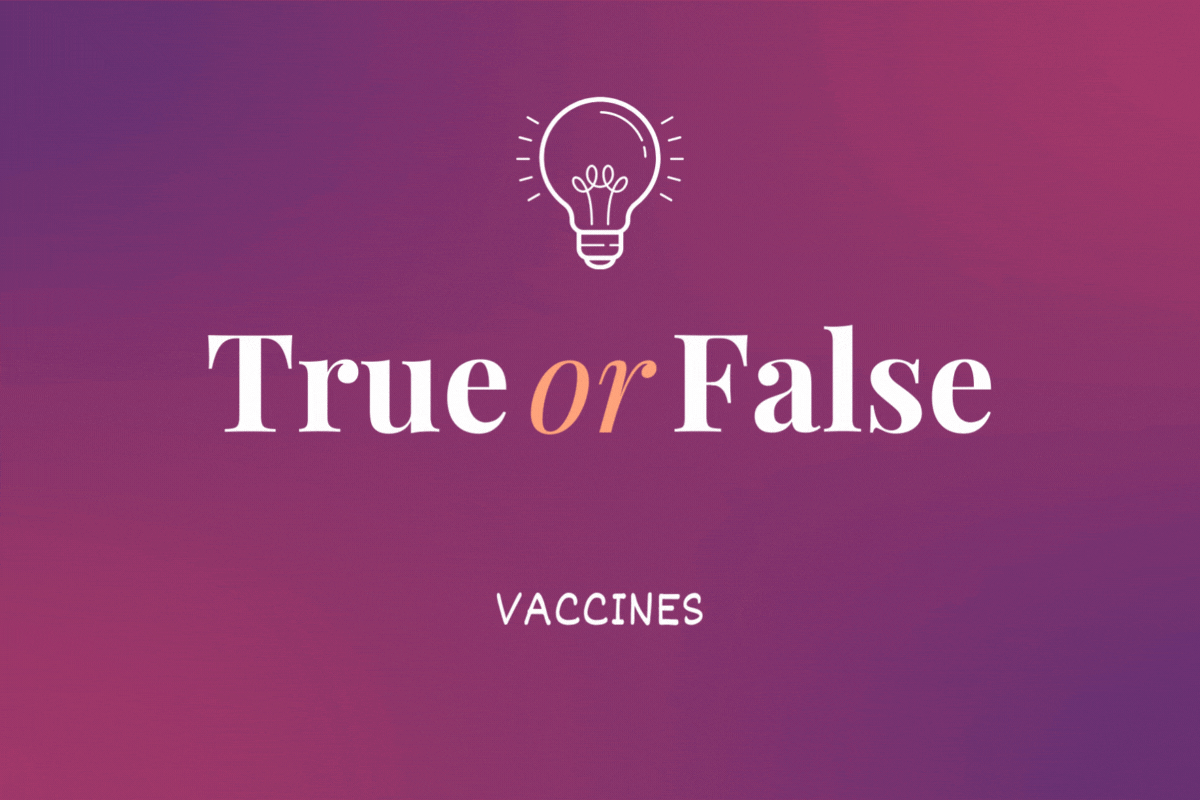
True or False? Vaccines
An epidemiologist lets us know whether five common beliefs about vaccines are true or false
Dec 12, 2022
Your Health
An epidemiologist lets us know whether five common beliefs about vaccines are true or false
When it comes to vaccines, there’s a lot of misinformation out there. To clear up any confusion, we gave Debra Furr-Holden, Ph.D. five common beliefs and asked her to let us know if they’re true or false. Furr-Holden is an epidemiologist, dean of NYU’s School of Global Public Health and a member of HealthyWomen’s Women’s Health Advisory Council.
Correct
Incorrect
Correct
Incorrect
Correct
Incorrect
Correct
Incorrect
Correct
Incorrect
This resource was created with support from Merck.